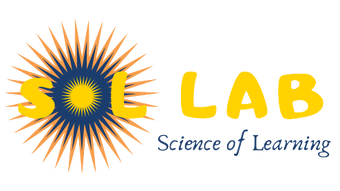Relational Reasoning Across Cultures
At the Learning Lab, we are interested in how comparative thinking develops and is scaffolded in a wide variety of contexts. International studies allow us to understand how different cultures build relational reasoning in the classroom and in everyday life.
Recent Studies
Our cross-cultural studies ask whether children in all cultures develop analogical thinking skills in the same way and, if not, what aspects of our diverse education systems might influence the way children learn to draw connections.
Analogy Development
Our research on development of analogy has shown that young children in Hong Kong are able to process analogies more efficiently than children in the United States by constructing higher lever relational representations that take some of the strain off their working memory.
Based on computational simulations relational reasoning (see LISA), we hypothesize that preschoolers in Hong Kong are more successful than preschoolers in the US on the scene analogy task due to their increased socialized experience with relational language inputs in schools and at home with care givers.
Based on computational simulations relational reasoning (see LISA), we hypothesize that preschoolers in Hong Kong are more successful than preschoolers in the US on the scene analogy task due to their increased socialized experience with relational language inputs in schools and at home with care givers.
Classroom Analogy Use
Our research also explores the way comparative thinking is scaffolded in international educational systems. Using the TIMMS video data of teaching practices in the United States, Japan and Hong Kong, we have identified and are systematically testing six teacher practices used in higher achieving mathematics countries like Japan that are underutilized in U.S. classrooms. We believe that these practices help support Japanese students' comparative thinking by reducing processing demands and by drawing learners' attention to the comparison being made.
The TIMMS data show us that teachers' ability to help students make mathematical connections is the only reliability difference between higher achieving mathematics countries like Japan, and lower achieving mathematics countries like the United States.
A full review of our current research that integrates common Japanese teaching practices into U.S. mathematics classrooms can be found here.
The TIMMS data show us that teachers' ability to help students make mathematical connections is the only reliability difference between higher achieving mathematics countries like Japan, and lower achieving mathematics countries like the United States.
A full review of our current research that integrates common Japanese teaching practices into U.S. mathematics classrooms can be found here.
Publications
Research Funded By:
The Institute of Education Sciences

